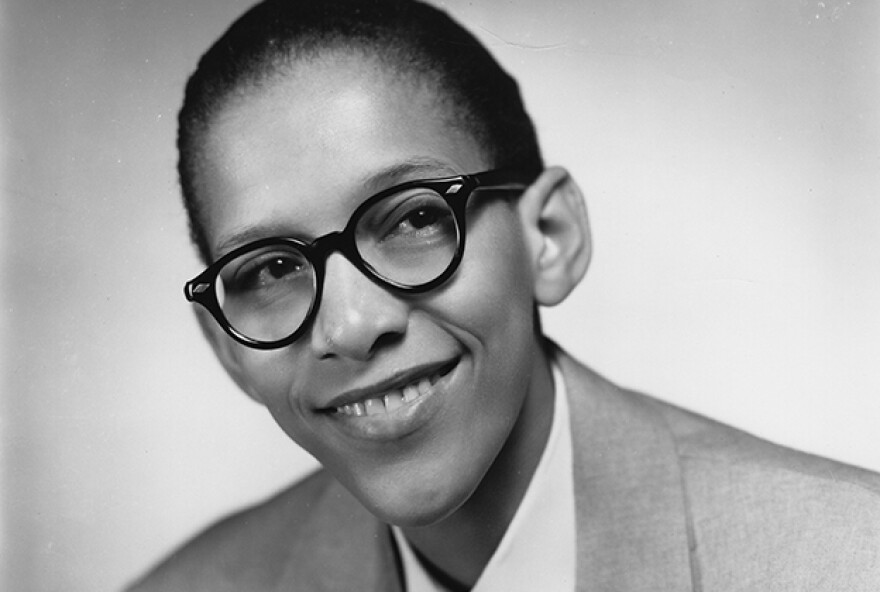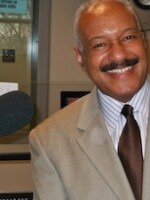With his unique “tempo-less” ballads and high voice, Little Jimmy Scott was a spellbinding jazz vocalist. Though his style was under appreciated by the larger listening public for most of his professional performing career, he was nevertheless admired by Nancy Wilson, Marvin Gaye, Shirley Horn, Aretha Franklin, Frank Sinatra, Billie Holiday, Betty Carter, Michael Jackson, and many others.
Born in 1925 in Cleveland Ohio, Little Jimmy Scott was one of nine siblings. A rare genetic condition known as Kallmann’s syndrome prevented him from reaching puberty, and stunted his growth at four feet eleven inches tall. His mother taught him piano — his only formal music training. Scott despised his distant and irresponsible father. When his mother died when he was thirteen, he was drawn even more closely into an intimate relationship with singing and music.
After living in multiple foster homes, Scott created an entrepreneurial job for himself as a valet to the stars, cleaning and pressing clothes backstage at various venues. Usually timid, Scott worked up enough nerve to ask saxophonists Ben Webster and Lester Young if he could sing a few tunes during one of their breaks. He went on to perform with Charlie Parker, Lionel Hampton, Sarah Vaughn, Jack McDuff (on piano before his organ fame), Ruth Brown, Redd Foxx (at Baltimore’s Gambi’s lounge).
Looking age thirteen and sounding like a girl, Scott received many catcalls from audiences — “faggot,” “freak,” or “sissy” — but none denied the raw emotion that came from his voice. This burden of being so different, and so personally ridiculed for it, contributed to Scott's frequent drinking and dependence on others to promote his career. Contrary to widely held belief, Scott was not gay. He had several wives during his lifetime.
With high expectations and very low pay, Scott was lured into making recordings for Savoy Records by owner Herman Lubinsky. Lubinsky and Savoy Records became well-known for recording and ripping off African American artists. Some of the label's associates referred to it as “The Slave Barracks.” For decades after Scott left Savoy, Lubinsky prevented his projects from being released, threatening other recording companies with contract violation lawsuits. After Lubinsky’s death, no such binding contract could be found. In his book Faith in Time, The Life of Jimmy Scott, author David Ritz quotes music producer Joel Dorn, who called Herman Lubinsky “a human hemorrhoid and close personal friend of the devil”.
Scott’s career floundered despite recording projects produced by Ray Charles, Philadelphia’s Joel Dorn, and Doc Pumas. Every company was frightened into not releasing Scott's work, and the projects were not released until after Lubinsky’s death. This was part of the reason Scott wasn’t recognized until he reached his mid-sixties, even after a lifetime of recording.

With such songs as “When did you leave heaven,” “Someone to watch over me,” “Why Was I Born,” and many others, Scott continues to charm with his unmistakable interpretations. He received the NEA Jazz master award in 2007, a Kennedy Center “Living Legend” award, and was inducted into the R&B hall Of Fame in 2013.
In 2014 at the age of 88, Little Jimmy Scott died of cardiac arrest in his sleep in his Las Vegas home.







